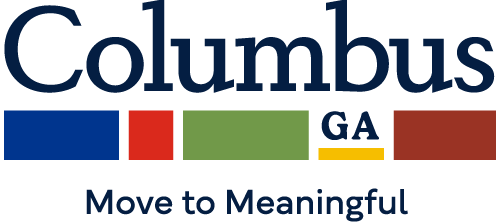Assistant Engineering Director - G132

Columbus Consolidated Government
This job is no longer accepting applications
See open jobs at Columbus Consolidated Government.See open jobs similar to "Assistant Engineering Director - G132" Columbus 2025.Major Duties and Responsibilities
-
This position is responsible for the management of the Traffic Engineering Division.
- Provides engineering services and technical assistance to all departments within the Consolidated Government; coordinates and oversees consultant contracts.
- Reviews site development plans for proposed commercial and subdivisions; coordinates with other departments and divisions to ensure compliance with all local, state, and federal laws; performs final inspection prior to acceptance of public infrastructure by the City Council.
- Assists in the management of the Department of Engineering. To include hiring, planning, assigning of personnel. Also supervises the work of the Traffic Engineering Division Shop.
- Directs and manages personnel issues for division employees including goals and objectives, performance evaluations, leave time, overtime, disciplinary actions, grievances, and training and personal development.
- Coordinates with Planning Department related to zoning cases.
- Coordinates the preparation of legal documents including ordinances, resolutions, coordination sheets, deeds, and plats.
- Oversees the implementation, coordination, and monitoring the FEMA community rating system for the city.
- Represents the department in legal cases.
- Attends Council meetings and other public meetings as required.
- Investigates complaints from citizens or other departments.
- Prepares the annual division budget, monitors expenditures, and approves procurements.
- Provides design services and operational management of roadway improvements; solves traffic safety, operational, and congestion problems.
- Designs traffic signal installations; supervises signal construction and maintenance.
- Directs and supervises the installation and maintenance of traffic signs and pavement markings.
- Manages the investigation of traffic safety and citizen inquiries.
- Provides training to subordinates in the traffic engineering field.
- Prepares technical specifications and provides technical expertise for projects.
- Evaluates traffic signal system operations; prepares signal timings for operational improvements.
- Administers and manages street lighting along public roadways.
- Reviews design and construction plans submitted by local engineering firms.
Knowledge, Skills and Abilities
-
- Knowledge of the accepted principles and practices of civil and traffic engineering and surveying.
- Knowledge of the principles and practices of budgetary development and management.
- Knowledge of the principles and practices of public administration.
- Knowledge of the methods and techniques of research, statistical analysis, and report presentation.
- Knowledge of the geography of the city and other local areas.
- Knowledge of traffic signal system design and operations.
- Knowledge of the principles of street lighting design.
- Knowledge of radio communication systems, electronics, and software.
- Skill in developing and implementing policies and procedures.
- Skill in problem solving and decision-making.
- Skill in management and supervision.
- Skill in operating standard office equipment including work related computer applications.
- Skill in oral and written communication.
Minimum Educational and Training Requirements
Bachelor's degree from in Traffic/Civil Engineering or Transportation Planning or a related Engineer field is required. Experience sufficient to thoroughly understand the diverse objectives and functions of the subunits in the department in order to direct and coordinate work within the department, usually interpreted to require five years of related experience. Must be an Engineer in Training pursuing a Certification as a Professional Engineer. Possession of or ability to readily obtain a valid driver's license issued by the State of Georgia for the type of vehicle or equipment operated.
Physical Requirements
-
The work is typically performed while sitting at a desk or table. The employee must occasionally lift light objects. Additionally, the following physical abilities are required:
- Balancing – maintain equilibrium to prevent falling while walking, standing, or crouching.
- Feeling – perceiving attributes of objects by touch with skin, fingertips.
- Grasping – applying pressure to object with fingers, palm.
- Handling – picking, holding, or working with whole hand.
- Hearing 1 – perceiving sounds at normal speaking levels, receive information.
- Hearing 2 – receive detailed information, make discrimination in sound.
- Kneeling – bending legs at knee to come to rest at knees.
- Lifting – raising objects from lower to higher position, moving objects side to side, using upper extremities, back.
- Manual Dexterity – picking, pinching, typing, working with fingers rather than hand.
- Pulling - use upper extremities to exert force, haul or tug.
- Pushing – use upper extremities to press against objects with force, or thrust forward, downward, outward.
- Reaching – extending hands or arms in any direction.
- Repetitive Motion – substantial movements of wrists, hands, fingers.
- Speaking – expressing ideas with spoken word, convey detailed, important instructions accurately, concisely.
- Stooping – bending body downward, forward at waist, with full motion of lower extremities and back.
- Talking 1- expressing ideas by spoken word
- Talking 2 – shouting to be heard above ambient noise.
- Visual Acuity 1 - prepare, analyze data, transcribing, computer terminal, extensive reading.
- Visual Acuity 2 - color, depth perception, field of vision.
- Visual Acuity 3 - determine accuracy, neatness, observe facilities/structures.
- Visual Acuity 4 - operate motor vehicles/heavy equipment.
- Visual Acuity 5 -close acuity for inspection of small defects, machines, use measurement devices, or fabricate parts.
- Walking - on foot to accomplish tasks, long distances, or site to site.
This job is no longer accepting applications
See open jobs at Columbus Consolidated Government.See open jobs similar to "Assistant Engineering Director - G132" Columbus 2025.

